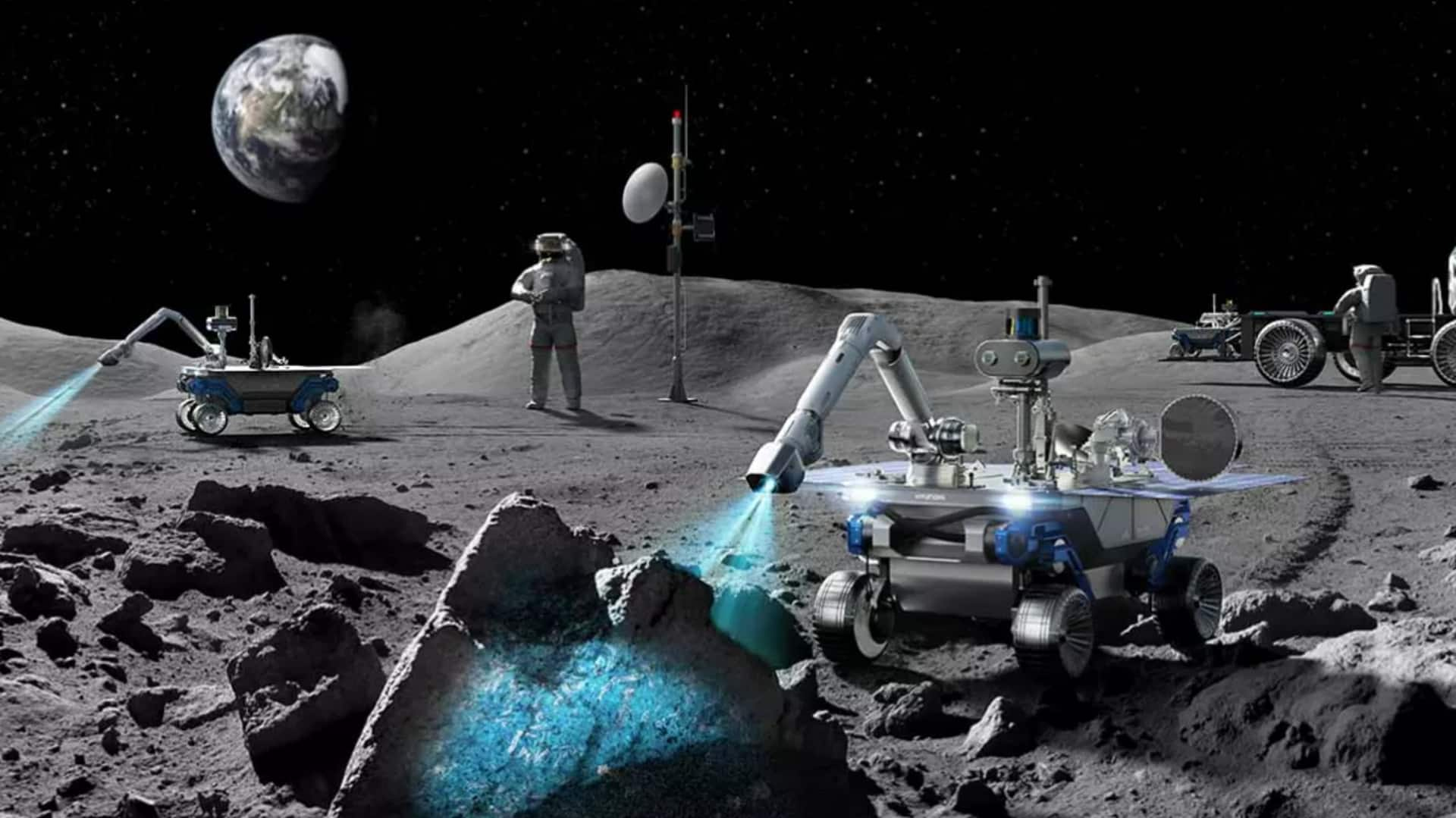
Hyundai Motor Group aims for Moon, starts constructing lunar rover
What's the story
Hyundai Motor Group (HMG) aims to reach the Moon in the near future.
The automotive manufacturer has announced that it has started building a developmental rover model for lunar exploration. The space vehicle will feature components from Hyundai and Kia cars.
The company hopes to ready the prototype by the second half of 2024 and create a model with launch capability in 2027.
Context
Why does this story matter?
Hyundai does not appear to be interested only in cars. With its latest project, the company hopes to "expand human reach" and provide "innovative mobility solutions."
What could probably work out to its advantage is that Hyundai also owns Boston Dynamics, the Massachusetts-based robotics company, which could provide significant inputs for the development of the lunar exploration rover.
ROver
The lunar rover's upper section will pack payloads for exploration
The rover's lower section will house the company's components while the upper section will pack scientific payloads for digging, excavation, and exploration of the lunar surface.
The main goal would be to "deliver a universally applicable mobility platform to handle a variety of payloads."
The lower part of the rover is expected to function as a mobility platform, supporting the upper part.
Landing
The lunar rover will weigh around 70kg
The rover will be equipped with a thermal management system and radiation shielding in order to withstand the harsh environment on Moon.
HMG's lunar rover will be solar-powered and is expected to weigh around 70 kilograms. It will be capable of autonomous driving.
The automaker intends to land the rover at the Moon's south pole region to carry out exploration.
Testing
Developmental model of the rover will undergo "mission-based performance testing"
The lunar rover will utilize components from Hyundai and Kia cars, including motors, wheels, suspension parts, cameras, and charging components like solar panels and batteries, among others.
Before the rover is sent to the Moon, the company will conduct "mission-based performance testing of the development model" in an environment similar to Moon's surface and will make modifications based on the test outcome.
Collaboration
HMG has partnered with research institutes to develop the rover
HMG collaborated with six Korean research institutes in the aerospace sector, signing an agreement in July 2022, for developing the lunar rover.
The organizations help run and support a consultative body to build the rover. The list includes the Korea Astronomy and Space Science Institute (KASI), Korea Institute of Civil Engineering and Building Technology (KICT), and Korea Automotive Technology Institute (KATECH).